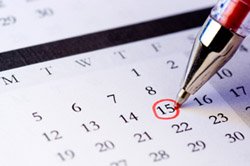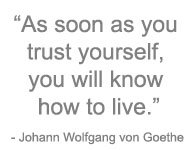Your Menstruation Cycle
Your menstruation cycle - it is a part of your life from puberty to menopause.
But, what exactly is going on in our bodies during our periods, and what is the relationship between periods and menopause?

Your Menstruation Cycle: The Nutshell Version
-
1. It Starts With Estrogen
Just before we ovulate, we get a kick of estrogen. This causes the lining in our uterus to grow thicker. Should we happen to get pregnant, this thick lining would protect the fertilized egg.
2. Bye Bye Egg
Every month during our fertile years, our ovaries send out one egg (ovulation) which goes down our fallopian tubes and into our uterus.
3. Progesterone Time
When the egg is released from our ovaries, we get a little kick of progesterone which makes the lining in our uterus able to nourish a fertilized egg.
4. To Fertilize or Not to Fertilize?
If the egg becomes fertilized with sperm, we become pregnant. If it does not become fertilized, it will come out of our uterus during menstruation.
5. Not Fertilized? It's Time to Menstruate
If the egg is not fertilized, we don't need the uterine lining that our bodies created. And so, our estrogen and progesterone levels drop, and the lining is shed.
This happens within our bodies every month, causing us to have our menstruation cycle.
Pre Menopause and Irregular Menstruation
As women reach mid-life, they begin experiencing irregular menstruation (among many other symptoms!).
This natural phase occurs as estrogen and progesterone levels drop. This drop in hormones means that there is no longer a signal in the body to release an egg and to create a thicker uterine lining.
What Is Menopause and When Will It Happen to Me?
Post menopause is the stage in life when women no longer menstruate.
Experts declare that a woman is post menopausal after she has gone 12 months without menstruating.
But, there is a stage that lasts from 1-12 years (the average is 6 years) where her body is transitioning from regular monthly cycles to no monthly cycles.
Around the age of 47, women begin to experience peri menopause, the first stages of menopause when her body begins this change.
(Some women may undergo this change earlier because of induced menopause. This happens after she has undergone chemotherapy or radiation in her pelvic area or after she has had her ovaries removed.)
Can You Tell When You're Ovulating?
Many women are interested in knowing their menstruation cycle in more detail. Instead of simply knowing what day they can expect their periods, they want to know when they are ovulating.
There are times during a woman's cycle that she is more fertile than others, so knowing the signs of ovulation can help a couple determine the best times of the month to have sex in order to either get pregnant or avoid pregnancy.
Knowing your signs of ovulation will also help you to know your body better and will help you to better understand your emotions throughout the month.
This is also helpful if you have entered peri menopause and you are getting irregular periods.
If you fall into this category, you can no longer mark the same day on the calendar each moth, but if you know your own body's signs of ovulation, you will be able to predict when your period is coming.
Good News
As our bodies begin to undergo this change, we begin focusing more on ourselves and being a fulfilled, centered, present woman who is comfortable with herself and her life.
Our physical shift away from being fertile synchronizes with our mental shift away from worrying what others think of us. We begin to stand a little taller and focus our energy on leading the best life that we can.
Return from Menstruation Cycle to Estrogen Source Homepage.
Copyright © 2009- 2015 Estrogen Source. All Rights Reserved.
The information on this site is my opinion only.
Consult your doctor before acting on any information found here.
Click here to read our Privacy Policy and Disclaimer.



